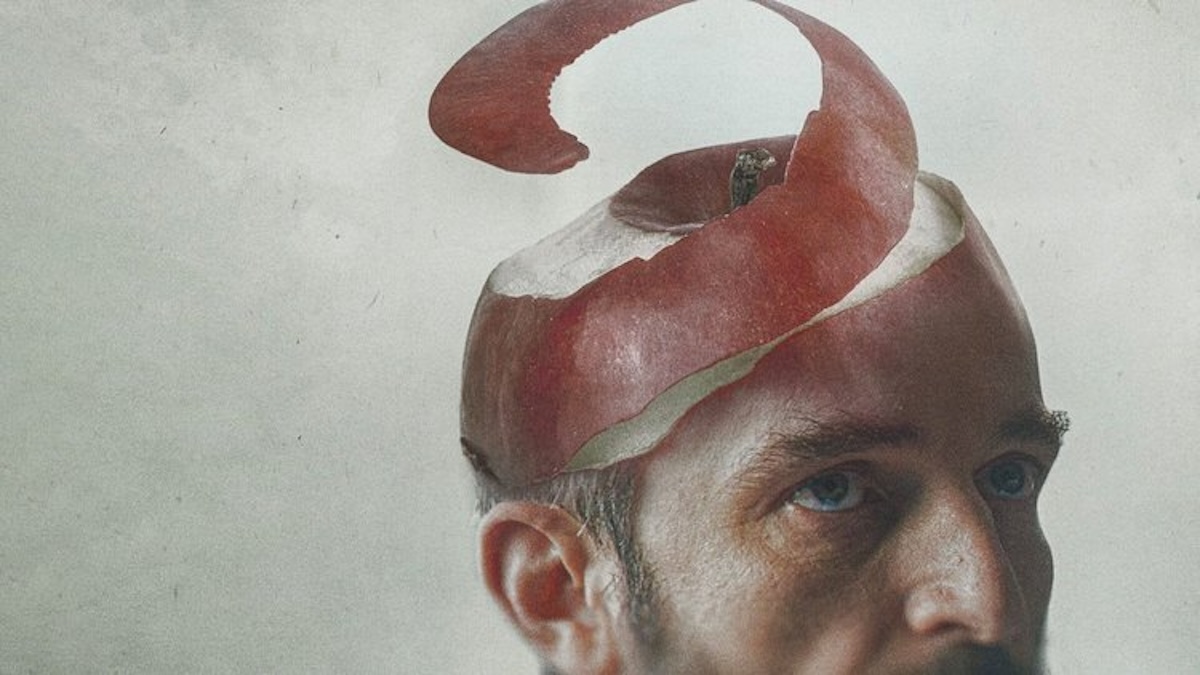This week at 5th Avenue Cinema—Oregon’s only student-run theater—our film curators are screening Apples, a Greek film by Film Director Christos Nikou.
A worldwide pandemic causes amnesia, plaguing a large portion of the population and stripping them of their identities. Our unnamed main character wakes up on a public bus in Athens without any identification. When no family or friends come to claim him from the hospital, he is enrolled in a government program that is designed to help people like him build a new identity. In this seemingly modern world without the internet, our main character plays a cassette tape each day that tells him to perform casual tasks or try hobbies and take photos in hopes that each experience may assist in jogging his memory. In the meantime, we watch him eat the only thing he’s sure of—apples.
Released in November of 2020, Apples reflects the grief, loneliness and confusion that was felt by the world during our real life global lockdown.
Continuing their November food theme, 5th Avenue’s Projectionist Clara Johnson chose Apples for screening. She discovered the movie while seeking food-related films on Letterboxd.
“The thing that drew me in was the poster,” she said, referring to the photo of a man’s head peeled like an apple—which can be seen from the window outside 5th Avenue Cinema. “Sometimes the posters are so much better than the movie—I don’t think it was in this case.”
The film’s premise captivated Johnson.
“If your family can’t find you and you don’t know who you are, what are you supposed to do? This guy ends up in that situation,” she explained. The scenario fascinated and horrified her. “He believes that apples improve memory, so he buys giant bags of them, […] desperate to make his memory return.”
Johnson drew similarities between the film and Eternal Sunshine of the Spotless Mind—another movie where people choose to remove memories of their exes or dead loved ones from themselves. Apples also reminded Johnson of the film Her—where a man falls in love with an artificial intelligence being.
“There’s that loneliness in it where he’s desperately searching for something that’s not real and he can’t seem to move past—or he’s moving past something in the wrong way,” Johnson said.
Director Nikou learned filmmaking skills from Greek Filmmaker Yorgos Lanthimos—who created award-winning films like Poor Things, The Favourite and The Lobster.
“It’s his protégé, basically,” Johnson said. “This guy studied under him. This was his first movie.”
Nikou began his filmmaking career as an assistant director to Lanthimos on the acclaimed Dogtooth.
Johnson felt surprised by how much she enjoyed Apples after discovering Nikou’s connection to Lanthimos.
“I didn’t like Poor Things—like at all,” Johnson said. “I don’t like the way that he depicted women.”
Johnson added that the Lanthimos films she has seen are unusual and the reason for their creation is not evident or simply doesn’t resonate with her. However, she admired this new wave of strange films emerging from Greek filmmakers inspired by Lanthimos.
“The dialogue and the pacing—it’s similar in how mundane it is,” Johnson said. “They don’t have a consistent inflection in how they speak. It’s very robotic, and that’s how almost all of his mentors’ movies are like—but I found this one to be more captivating because there still was some emotional tether there that I just can’t really seem to find in some of the other ones.”
As a photographer, Johnson appreciated the polaroids that the main character takes throughout the film to help with his memory.
“I also really liked how it’s in this weird version of reality where phones and computers don’t exist,” she said. “It looks like now—it is now—but no one’s on their phone.”
Johnson said how the main character of Apples puts his photos into a scrapbook as if it is Instagram.
A scene that stands out to Johnson features the main character dressed as an astronaut, with the viewer unable to see his face.
“He’s walking around and kind of looks at people as if they can’t see him,” Johnson said. “As if he doesn’t exist anymore. I really like that scene.”
As the film progresses, you learn very few things about our main character—Johnson questioned whether that’s for the best.
“We see him interact with other people that might have also had traumatic lives or experiences—but they just can’t remember them,” Johnson said. “Is it good that they can become a new person or is it a tragedy?”
“There’s some mystery to it,” Johnson said. “Because in some parts you’re like, ‘I feel like he might have remembered that’ but you can’t really tell necessarily.” She noted that some viewers don’t appreciate the film’s ambiguity, but she enjoys it. “Is his memory coming back—or is he pretending to—it having been away in the first place?”
Johnson is excited for people to come see the movie she chose. If people don’t enjoy the dry humor, they will certainly relate to the theme of self-discovery and the search for one’s identity.
“It’s a short and sweet, vague movie,” Johnson said. “It’s almost like a dream, I think it’s worth watching.”
Students can catch Apples this weekend for free at 5th Avenue Cinema. Showings start at 6 p.m. and 8:30 p.m. on Friday and Saturday, with a 3 p.m. matinee on Sunday.






